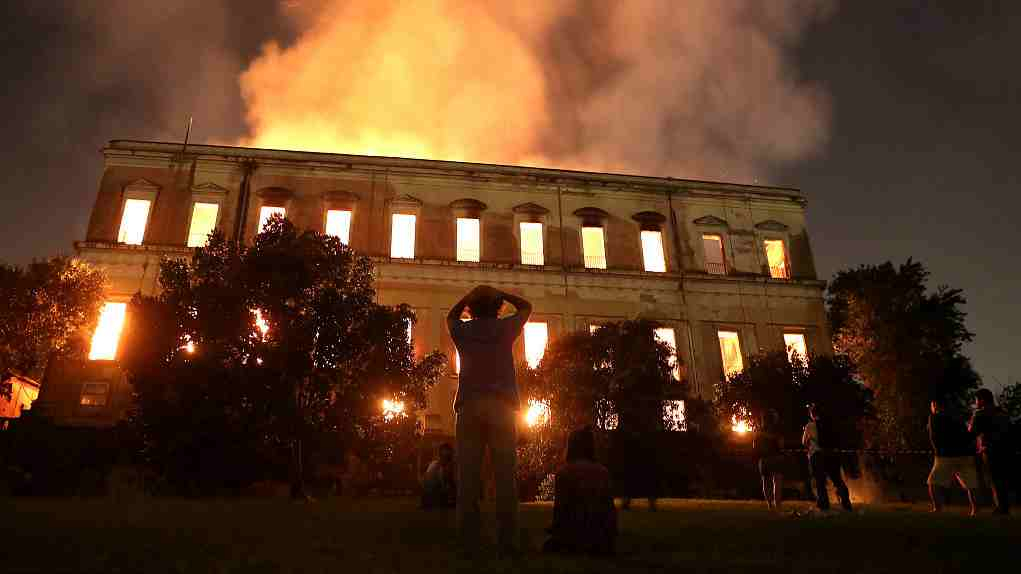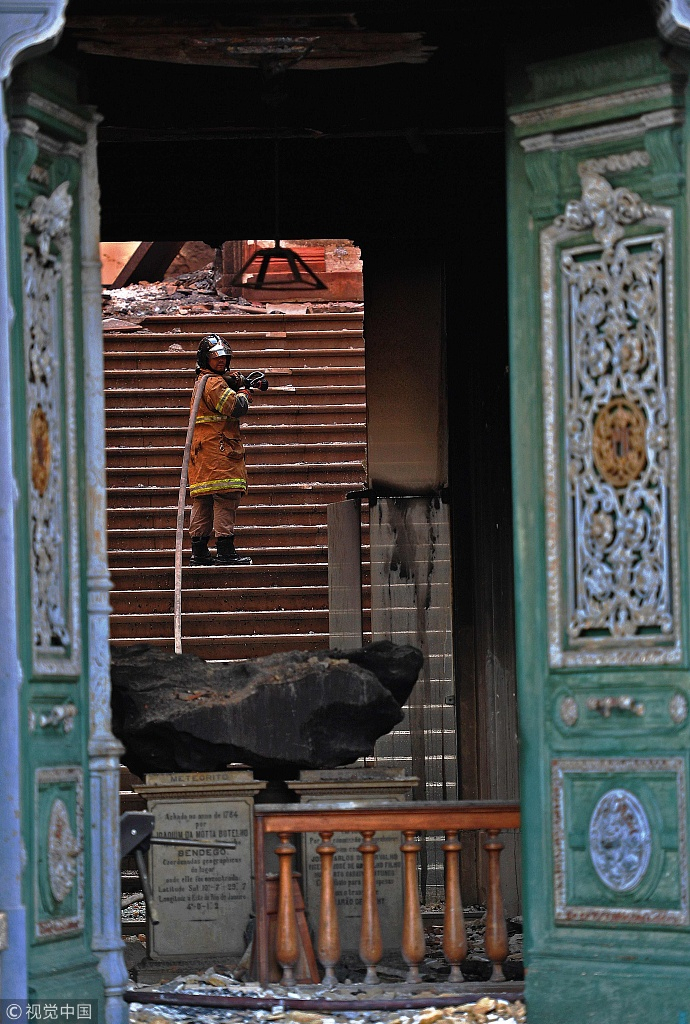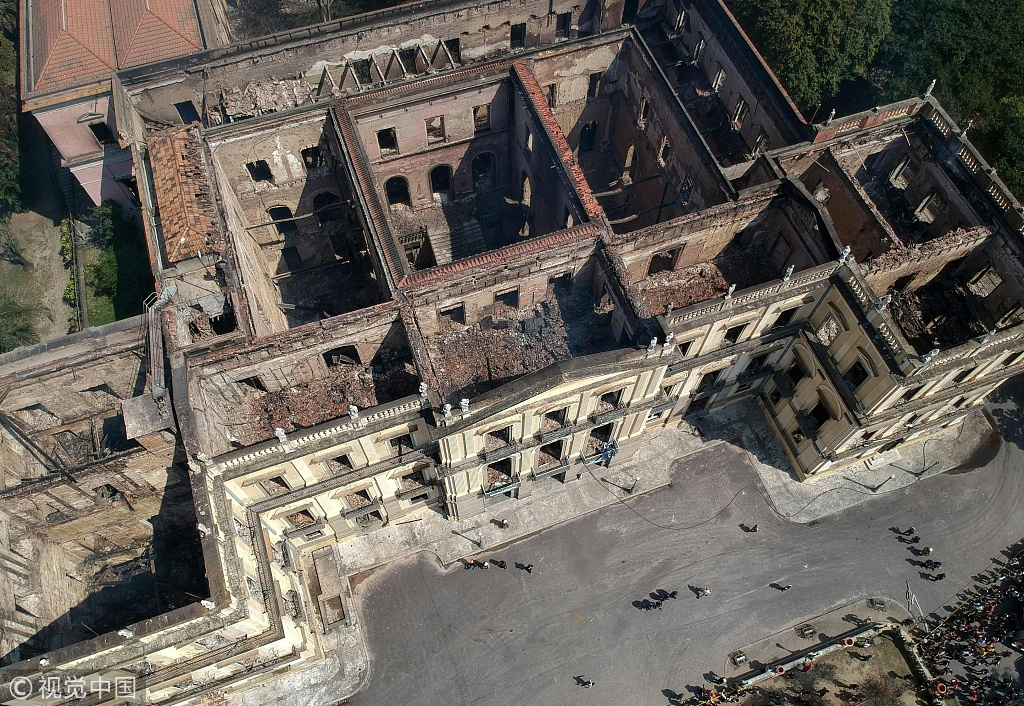
Culture
21:01, 05-Apr-2019
Short circuit sparked Brazil's National Museum fire, investigation shows
CGTN

The fire that ravaged Brazil's 200-year-old National Museum in September was caused by a short circuit in the building's air-conditioning system, authorities said on Thursday.
Investigations determined the fire that destroyed nearly the entire historic monument started in an air-conditioning unit on the ground floor, then swept through the other two floors, Brazil's Federal Police Chief Ricado Saadi told a press conference.
Three specialists in fires, audio-visual systems and electrical networks, ruled out foul play, lightning or some flammable object as the cause.
Images of smoke captured by surveillance cameras helped investigators pinpoint the origin of the fire, said Carlos Alberto Trinidad, the fire specialist.

A firefighter works near a meteorite at Rio de Janeiro's treasured National Museum, one of Brazil's oldest, on September 3, 2018, a day after a massive fire ripped through the building. /VCG Photo
A firefighter works near a meteorite at Rio de Janeiro's treasured National Museum, one of Brazil's oldest, on September 3, 2018, a day after a massive fire ripped through the building. /VCG Photo
"The fire started in the auditorium on the lower level," he said.
To rule out foul play, investigators tested a variety of highly flammable chemicals, including alcohol, gasoline and diesel, comparing their flames with the traces of the flames left on the floors of the building.
"We did not find any trace of a material that propagates fire," said Trinidad.
The installation of the air-conditioning system in the auditorium was faulty, said Marco Antonio Isaac, the electrical specialist.

Aerial view of Rio de Janeiro's treasured National Museum, one of Brazil's oldest, on September 3, 2018, a day after a massive fire ripped through the building. /VCG Photo
Aerial view of Rio de Janeiro's treasured National Museum, one of Brazil's oldest, on September 3, 2018, a day after a massive fire ripped through the building. /VCG Photo
One of the three air-conditioning units was not properly grounded and each unit did not have its own voltage regulator, he said.
Some 90 percent of the museum's collections were destroyed in the September 2 fire, including Egyptian mummies and the largest African art collection in Brazil. The museum was also home to the oldest human skull found in the Americas, which survived the fire.
The building itself was historically important. Before being converted into a museum, it was the home of Brazil's monarchy in the 1800s.
(Top image: People watch as a fire burns at the National Museum of Brazil in Rio de Janeiro, Brazil, September 2, 2018. /VCG Photo)
Source(s): Xinhua News Agency

SITEMAP
Copyright © 2018 CGTN. Beijing ICP prepared NO.16065310-3
Copyright © 2018 CGTN. Beijing ICP prepared NO.16065310-3